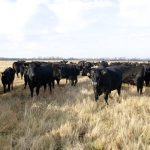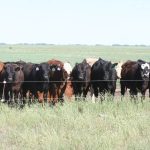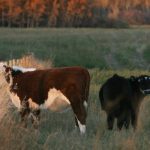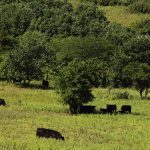The trace mineral status of our cows and calves is a significant challenge for western Canadian producers and veterinarians.
Stories by John Campbell, DVM, DVSC

Lessons can be learned from the New World screwworm
While screwworm is not a major threat to us in Canada because of our colder climate, the U.S. outbreak has some important lessons for livestock producers everywhere.

Asian long-horned tick continues to spread in the U.S.
Asian long-horned ticks were originally a native species of eastern Asia, but they have spread to other countries around the world, primarily through animal movement and animal importation.

Cattle sector winning fight against bovine viral diarrhea
Bovine viral diarrhea virus could cause a variety of potentially devastating outbreaks such as infertility, abortions, deaths of persistently infected calves.

Blue-green algae toxicity can cause sudden death in cattle
Water quality is an important issue when the temperatures start to rise. Work closely with your vet to diagnose the cause of any sudden death cases.

Cardiac defects in calves rare but likely underdiagnosed
A recent case of stillborn and weak beef calves was brought to my attention by a veterinarian who was working to diagnose the cause of calf mortality.

Protecting yourself from zoonotic diseases
Close contact with livestock during calving or lambing can increase exposure to potentially devastating illnesses
As many producers and veterinarians work with animals on a regular basis, it can be easy to become careless about protecting ourselves from zoonotic diseases.

New research studies modified live vaccines and fertility
Vaccines are an important part of protecting our herd’s health and fertility.

Pain control at castration in calves has obvious benefits
A recent survey on pain mitigation at castration yielded highly encouraging results
You probably won’t make money by using pain control, but your calves will feel better, pair up faster and you’ll be doing something that promotes animal welfare in your industry.

Salmonella dublin becomes more common in Canada
The technology gender-types embryos before they hatch, avoiding the standard practice of euthanizing day-old male chicks
Most of us are familiar with salmonella bacteria as a potential cause of gastrointestinal disease in humans. The severe diarrhea, abdominal pain, fever, headaches and dehydration can cause serious consequences in people, especially in the elderly and young children. However, there are numerous strains of salmonella bacteria, and some of them are adapted to cattle […] Read more



